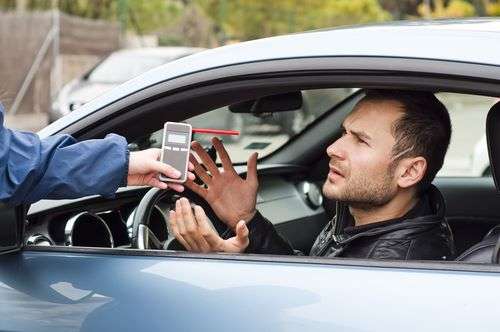In Georgia, there are laws against drunk driving. But, unfortunately, a person may sometimes break these laws and harm you or your loved ones. When this happens, you’ll need an Atlanta auto accident attorney to fight for your rights and hold the guilty party responsible.
Still, it’s vital to understand how state laws view drunk driving. So we explain all you need to know in this article.
What Is Drunk Driving in Georgia? An Atlanta Auto Accident Attorney Explains
In Georgia, there are two scenarios where a person can be charged with a DUI.
The first is when a law enforcement officer determines a driver is under the influence of alcohol or drugs while using the road. Sobriety checkpoints happen at specific, visible locations. Police can check drivers for signs of impairment like bloodshot eyes, slurred speech, a person’s admission of drinking, or inconsistent behavior.
The second is when a person’s chemical test result reveals a blood alcohol content (BAC) of 0.08% or more (for a driver over 21 years old), 0.02% or higher (if the driver is under 21 years old), or 0.04% or more for someone driving a commercial vehicle.
Drivers exceeding the BAC limits are considered legally drunk. Georgia law says that all drivers must take alcohol or drug tests when lawfully requested, or they can lose their license. The chemical test checks a driver’s blood, breath, or urine for alcohol or drug intake.
Understanding Georgia DUI Laws
In Georgia, drunk driving or driving under the influence (DUI) is a serious offense. So, it attracts severe consequences for convicted drivers.
Most importantly, drunk driving refers not only to alcohol-related impairment. It also applies when driving under the influence of drugs (whether illegal, prescription, or over-the-counter), toxic vapors, or a combination of drugs and alcohol.
So, by Georgia law,
- A person must not drive or be in actual physical control of any moving vehicle after consuming alcohol to the point where it becomes less safe for the person to drive.
- Operating a vehicle while using any drug that impairs your driving ability is prohibited.
- It is not permitted for any person to drive or physically control any moving vehicle while they exceed a blood alcohol concentration limit of 0.08 grams at any time within three hours after such driving.
- A commercial driver’s license (CDL) holder shall not drive or be in control of any moving commercial motor vehicle with 0.04 percent or more BAC in their blood, breath, or urine.”
Potential DUI Consequences in Georgia
In a drunk driving case, two forms of penalties exist.
Firstly, a Georgia court can impose criminal penalties. This judgment includes a certain amount in fines, jail time, and mandatory community service. In addition, there’s a look-back period of 10 years for criminal penalties to determine minimum sentences.
The Department of Driver Services also issues driver’s license suspension or revocation. In this case, the law considers the person’s prior convictions within the last five years.
Criminal Penalties
The criminal penalties for a drunk driving charge depend on if the driver is a first offender, a second offender, and so on. There’s a minimum of 10 days of jail time for first offenders, a fine of at least $300, and up to 40 hours of community service. When it’s a second offense, there’s up to 90 jail time and a $600 fine, with at least 30 days of community service.
A third DUI conviction comes with 120 days of jail time, between $1,000 – $5,000 in fines, and a month of community service (minimum). Jail time for first-time to third-time offenders can potentially be up to one year.
Some special conditions or circumstances may also arise from a criminal DUI conviction:
- Drivers must undergo 12 months of probation after a DUI conviction. Before starting probation, the driver must serve 24 hours in jail if a first offender, 72 hours imprisonment after a second offense, and 15 days for a third offense.
- Also, completing a clinical substance evaluation and a respective treatment program is necessary. Second-time offenders must finish additional DUI education programs.
- If a minor was in the person’s vehicle at the time, child endangerment charges could be possible. This offense comes with a $1,000 fine and added 1-year jail time.
- After a second drunk driving conviction within five years, a person must surrender their driver’s license plates, which are not recoverable until they reinstate their driver’s license. The offender’s vehicle will be forfeited and sold upon subsequent convictions.
- A school bus driver convicted of a DUI while driving a school bus can receive an imprisonment sentence for a period between ten days and one year and pay a fine of $300 to $1,000. These penalties will increase with subsequent violations within ten years.
Driver’s License Penalties
Aside from criminal penalties, a driver guilty of drunk driving in Georgia faces suspension or revocation of their driver’s license. A first offender faces a 12-month suspension of driving privileges, while a second offense attracts up to three years of a suspended license.
A person’s driving license may be reinstated after completing a DUI education program (120 days for a first offense and one year plus six months for a second offense) and paying a $200 reinstatement fee.
Permanent revocation of a driver’s license occurs after a third offense. Still, the person can apply after three years to obtain a probationary license.
Furthermore, the law terms a minor DUI offense as a serious traffic violation for a person with a CDL. Therefore, a first offense attracts a one-year disqualification of driving privileges, while a subsequent DUI conviction results in a lifetime disqualification.
When Does Drunk Driving Become a Felony?
Usually, Georgia law regards a first or second drunk driving offense as a misdemeanor. A third and subsequent DUI is a high and aggravated misdemeanor.
However, a fourth offense within ten years elevates a drunk driving charge to a felony. Also, a DUI becomes a felony when a driver under the influence tries to evade the police or causes severe injury or death to others.
Then, there are stricter punishments for offenders. There’s a jail sentence of one to five years and at least a $5,000 fine with added court surcharges, and it attracts a three-year driving license suspension.
Get Help From an Atlanta Auto Accident Attorney Today
When accidents happen, there’s a lot of damage to deal with. That’s aside from the pain and suffering you or your loved ones suffer from injuries.
If the at-fault party is also guilty of driving under the influence, our legal team can help you seek compensation. You will get the best injury attorneys at The Weinstein Firm to examine your case and take action against the drunk driver. So, reach out today to schedule a no-obligation consultation.





